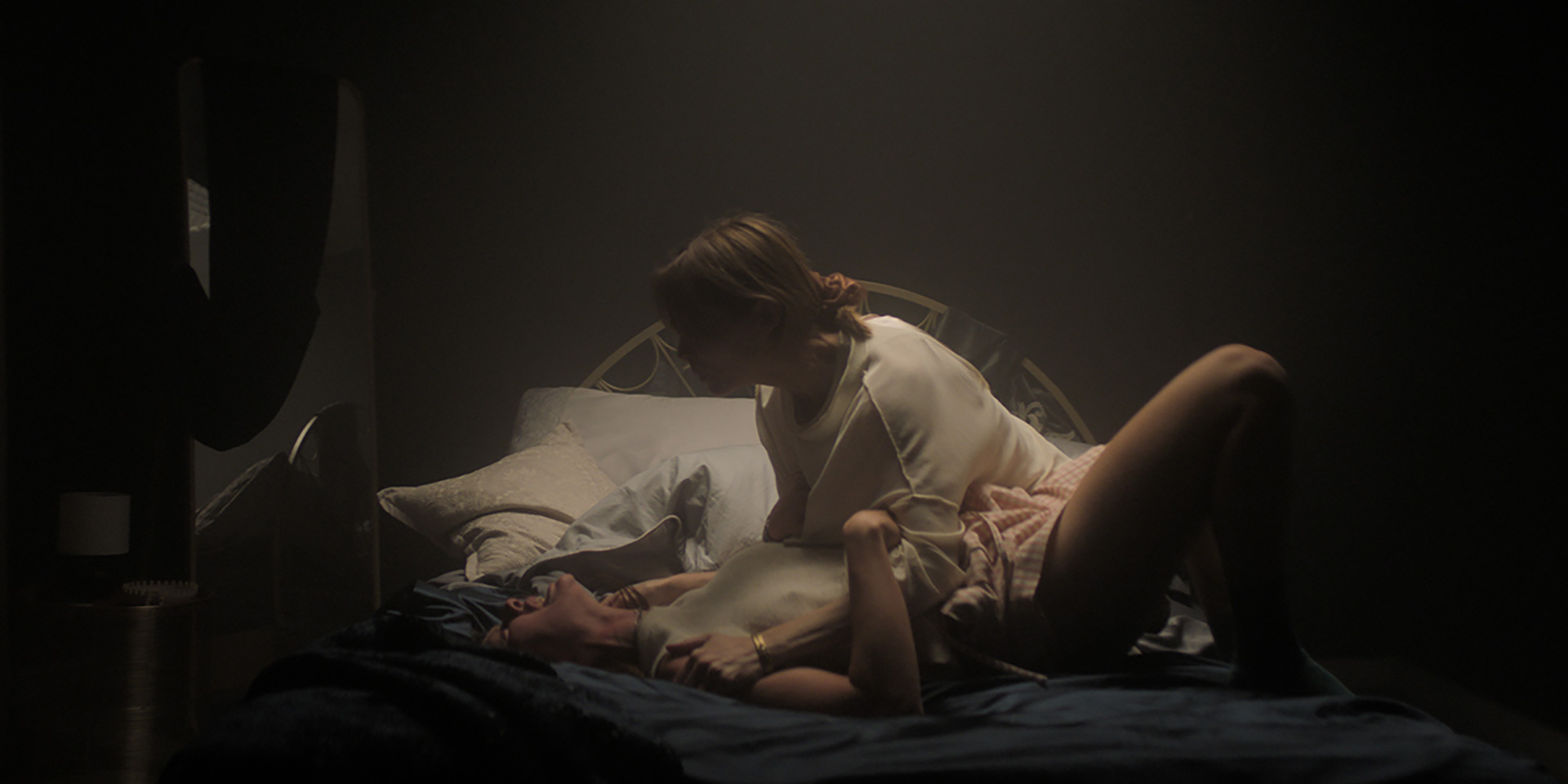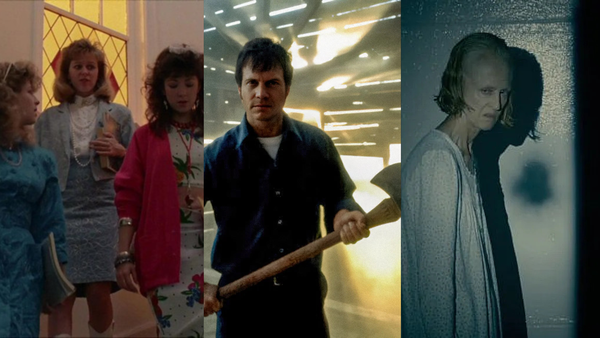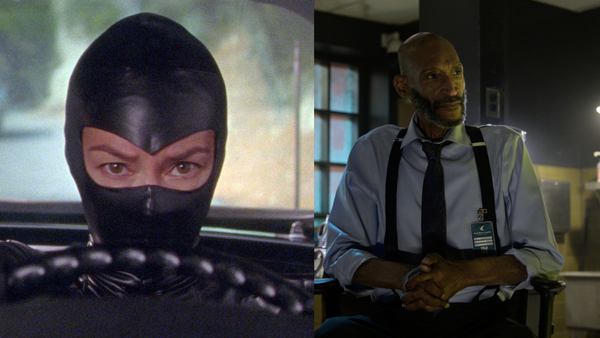Indie Horror Hall of Fame: A Banquet
“Haven’t you ever wondered what the point of everything is?”


A haunting tale of body horror and psychological drama, Ruth Paxton’s A Banquet is an often surreal examination of parental fears and the unrelenting pressure that women of all ages must navigate their way through due to a myriad of forces, actualized and hypothetical in nature.
Anchored by a trio of assured performances from Sienna Guillory, Jessica Alexander, and Ruby Stokes, A Banquet is a thought-provoking viewing experience that challenges viewers in unexpected ways and thoughtfully challenges so many social norms that prey on women on a daily basis, culminating in a finale that fearlessly pushes the boundaries of modern genre storytelling in new and exciting ways.
Written by Justin Bull, A Banquet is centered around a mother named Holly Hughes (Guillory), who is doing her best to raise her teenage daughters Betsey (Alexander) and Isabelle (Stokes) in the wake of her terminally ill husband’s suicide. As their family attempts to put the pieces of their already fragile lives back together and regain some semblance of normalcy, Betsey begins to exhibit unusual behaviors that happen to coincide with her impending transition into adulthood. She’s stopped eating. She often ends up transfixed by some unseen force that seemingly has a hold on her from above. And once Betsey declares her belief that her body has been claimed by a higher power to fulfill some profound destiny, the women of the Hughes family must contend with the fallout of Betsey’s horrifying journey that leaves an indelible mark on all of their lives, both collectively and separately.

Due to its contemplative nature, A Banquet presents itself as a thematic feast of ideas that continues to evolve throughout Bull’s script, deftly navigating the world of its characters as the terror — real or imagined — unfolds throughout Paxton’s provocatively crafted feature film debut. Throughout the story, the narrative often shifts its perspective of who we’re following in A Banquet, a decision that gives viewers an even more engrossing look at how the dramatic tension surrounding Betsey’s issues has insidiously crept its way into all of their lives.
At the start of A Banquet, we are introduced to the Hughes family matriarch Holly. She’s a woman whose entire existence feels like it is in service to the needs of others, through the way she cooks, tends to their needs, and takes the time to fold the ends of their toilet paper rolls in a decorative fashion. But Holly's resolve is clearly waning in the opening scene of A Banquet, as she can barely keep things together while caring for her husband who is undergoing palliative treatment which is clearly a grueling undertaking for this wife and mother who already has so much on her plate.
While watching Holly though, David Liddell’s cinematography masterfully captures the precision of every movement that she makes in her kitchen — a visual that we see repeated often in A Banquet, effectively demonstrating that Guillory’s character as someone who utilizes food to hold dominion over the things in life that she cannot otherwise control. But as Bull’s story repeatedly reminds Holly, life is often not something that can be predicted or manipulated, repeatedly testing her resolve as she desperately tries to keep what remains of her family intact. While it’s not explicitly declared, it’s probably not a stretch to assume that Holly’s own eating disorder, and her cold-as-ice mother’s response to those issues years ago is why Guillory’s character has such a deep-seated need to maintain mastery over everything that’s going on with her family. Holly has been through hell, and she’s trying her best to spare her own daughters from the same experiences.
While A Banquet spends a good deal of time with Holly, it’s really Betsey who propels the narrative in the film forward as her unsettling transformation from an awkward teen to a potential canonized vessel of God causes everyone around her a great deal of distress. Early on, we watch as Alexander’s character struggles to have her voice heard amongst her friends as they collaborate on a fundraising project together. With university looming in the distance, Betsey feels lost as she contemplates her future, so much so that she can’t even come up with a single entry in her “What Really Interests Me” page in her notebook.
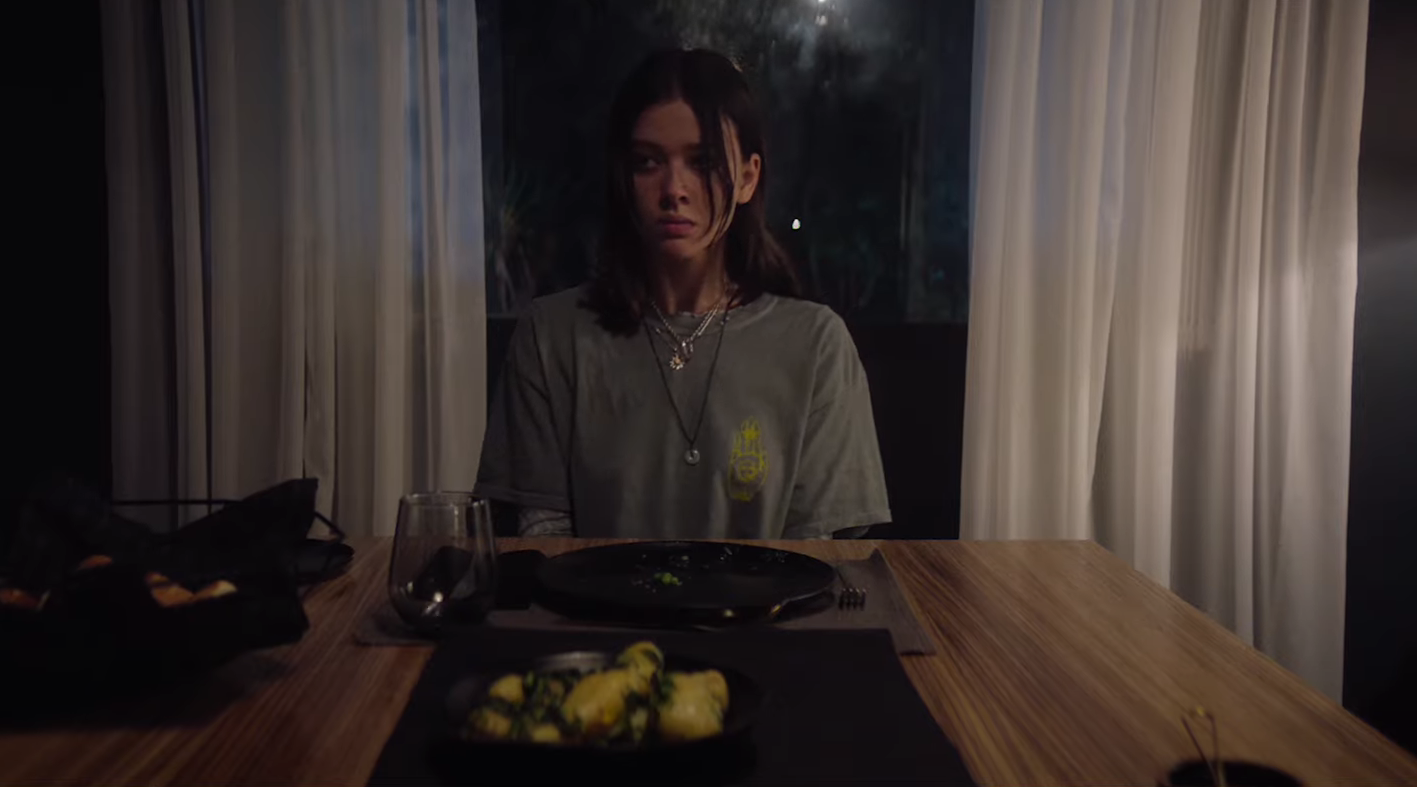
The only person that Betsey seems to share a strong connection with in A Banquet is her mother. Early on, their relationship is an open book, as it’s evident that Holly has created an environment where her daughter will be loved and accepted regardless of her behavior. That broad-mindedness on the part of Holly dissipates rather quickly once Betsey stops eating, an event that ties into several of the underlying themes at the heart of A Banquet.
The necessity of food and nourishment, as well as how Holly creates her own sense of value from these things, is featured throughout the aptly titled A Banquet. Both Paxton and cinematographer Liddell find ways of making tasks like food preparation, presentation, and consumption — activities that might otherwise feel trivial — seem so monumental in the world of the Hughes and that perfectly plays into the journey of these characters.
On the surface, Holly’s role as family chef feels like it’s being directly challenged by Betsey’s avoidance of food; but that act of defiance thematically runs even deeper as it explores the roles of Holly and Betsey as mother and daughter. Traditionally, mothers are relied on to provide sustenance to their progeny, whether it is through the act of breastfeeding or food preparation in general. Betsey’s rejection of her mother’s cooking is the ultimate betrayal of their bond, causing Holly to react viscerally to her daughter’s lack of appetite and try to blame Betsey’s new behavior on an eating disorder.
Instead of being compassionate towards Betsey’s condition, Holly is brutally confrontational and “accuses” her daughter of having anorexia, as she maliciously explains to the teen how it’s a condition that primarily affects privileged, middle-class white girls. It’s a statement made purely out of frustration, but it wholly reflects the desperate state that Holly is in when Betsey still cannot bring herself to eat anything after several weeks. Pushed into a corner, Holly demands to weigh Betsey twice a day as her way of proving a point. Every check-in with the scale proves to be a fruitless endeavor though, as the teen’s weight never changes at all — a fact that leaves Holly utterly bewildered and even more despondent in the wake of everything else going on.
The way that Holly calls out her daughter’s privilege in A Banquet is also a reflection of the life of comfort that had benefited the Hughes’ up until the point that we meet them here. Holly and her family live in a massive modern home that is meticulously decorated. Based on certain details in how they are presented, it’s evident that both Betsey and Isabelle have been afforded great educational opportunities, and they have everything they could possibly want.
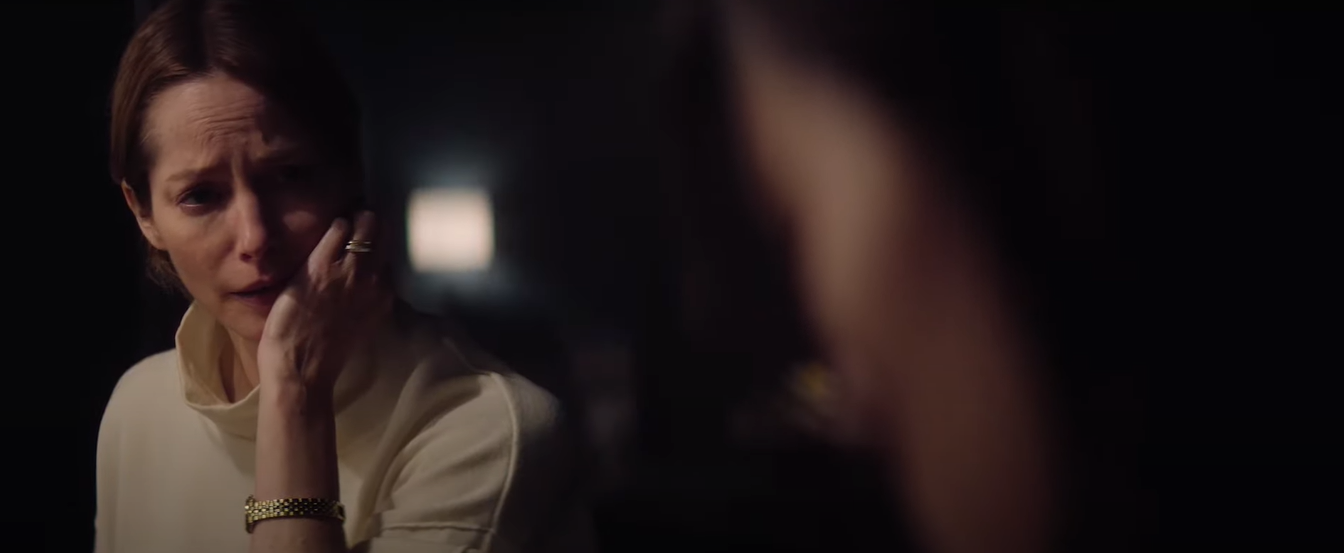
But in A Banquet, we see that no amount of privilege can protect them from the tribulations that they must face. These things that we do to care for ourselves — eat healthy, get a proper education, or doctor visits — these things can’t help Betsey. She’s beyond the trappings of our world in the latter half of A Banquet, existing on a plane that we cannot possibly begin to understand.
Holly does eventually achieve a sense of understanding about Betsey’s transformation in the film. After she takes a trip with her daughter to a facility that treats eating disorders, Betsey pleads with her mother to visit the forest where she was first “summoned” by this power that has been slowly claiming her life. While in the woods, Betsey describes to Holly how everything started and summarizes the enormity of it all by saying, “I’ve been chosen. It is a blessing, and we don’t have a choice.” Somehow, her mother, who has been constantly beset by tragedy and adversity amidst her family, is able to reach a point of acceptance about what’s happening to Betsey, where she realizes that there is something that is happening that cannot possibly be course-corrected.
Caught in the middle of the undercurrent of drama that ripples throughout A Banquet is Isabelle, Betsey’s younger sister. While Holly is an attentive mother to both of her children, it’s evident early on in the story that she’s always been more focused on her older daughter, often treating Isabelle and her needs as something of an afterthought. Early on, we watch as Isabelle dances in the house, disconnected from the rest of her family, and she rarely commands any sort of attention during dinner either.

During one of Betsey’s food-avoidance episodes early on, Isabelle is trying her best to communicate with her mother and is essentially ignored as Holly puts all of her focus on her eldest daughter instead. On another occasion, Isabelle declares her lack of appetite during a meal as well — a clear cry for attention — and she’s immediately shut down by Holly, without her mother truly understanding what this incident is all about.
Isabelle continues to struggle throughout A Banquet, and we see how the situation with Betsey negatively impacts her life, so much so that it conflicts with her own journey of discovery about her identity. She’s passionate about ice skating but after six months of Betsey’s “illness” hanging over her, Isabelle decides to give up the sport, but it’s hard to tell whether or not she’s made this decision out of a lack of interest or just outright frustration due to her mother’s inability to support her in the endeavor.
At one point in A Banquet, Holly describes Betsey as her “special girl,” which Isabelle happens to overhear, and it's evident in that moment to both the viewers and to the youngest member of the Hughes family that there is some preferential treatment happening between the sisters from their mother. Later on in the film, as Betsey’s condition continues to worsen, Isabelle decides to leave and go stay with Grammy June (Lindsay Duncan), as she no longer can handle the stress of living around her sister. Before she leaves with Grammy June, Isabelle confronts Holly’s favoritism, explaining to her mother how her sister showed her what it’s like to be nothing. It’s a moment that should leave Holly shaken to her core, but there’s a brutal truth to what her youngest child is saying to her at that moment, and it’s almost like Holly knows that if she were to try and rebuff that statement, it would make her a liar. Without a doubt, Betsey has possessed the Hughes family, and the only way that Isabelle is going to survive the ordeal is to do whatever she can to get out before it’s too late.
Ultimately, that assertion of nothingness from Isabelle coincides directly with the most prominent theme infused throughout the story of A Banquet: identity. Who are we really? What is our purpose in this world? Is it possible for us to be destined for a greater purpose that exceeds our understanding? As Betsey does her best to try and make sense of what’s going on, she asks her mom, “What if this is just me now? Some people are just destined for stuff, right? Some people are just special like that.”

So, is Betsey truly experiencing a transcendental awakening in A Banquet, or was there something more nefarious happening with her all along? There’s an ambiguity to how the final moments of the film can be perceived by viewers as we watch Holly, shattered by the grief of losing her daughter, stagger down the road until an all-encompassing light seemingly greets her. Is this proof that her daughter truly had been chosen for a higher purpose? Or was everything that happened connected to the grief and the trauma that has plagued Holly throughout most of her life, and now has subtly and devastatingly laid claim to her family through the most odious of manners?
There are some who demand answers from the films they watch, but there are others who, like Betsey, willingly embrace the unknown, and those are the viewers who will indubitably feast upon everything that Ruth Paxton serves audiences in A Banquet. Bull’s intimately crafted script constantly confronts expectations as it explores whether or not Holly’s own trauma has somehow infected her children or if there is indeed some greater power at play instead. The results are a viewing experience that is as disconcerting as it is emotionally devastating.
